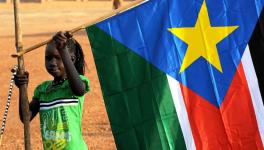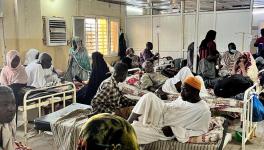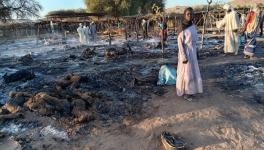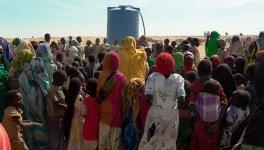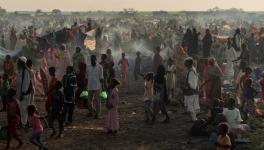Sudan: Cholera Ravages War-Torn Capital Khartoum
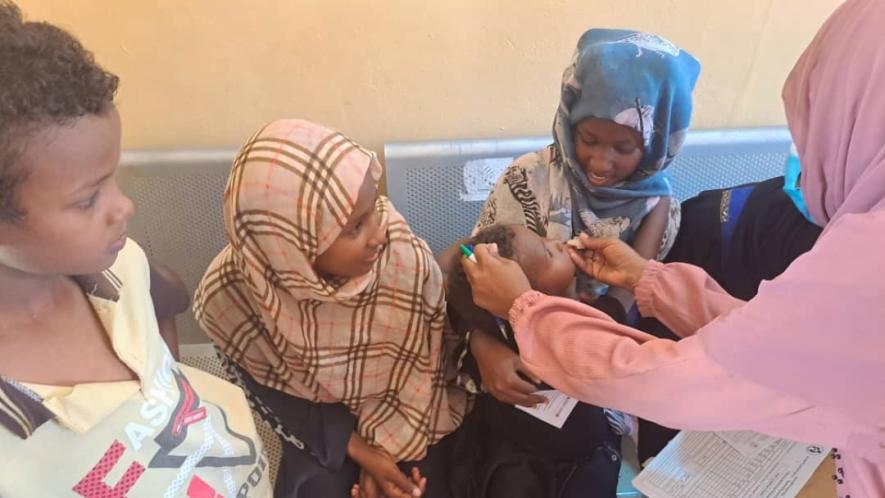
Cholera cases in Khartoum State have surged nine-fold in just 10 days — from an estimated 90 to 815 cases daily. Photo: UNICEF Sudan
A rapidly spreading cholera is ravaging war-torn Sudan’s capital, Khartoum, and its twin city, Omdurman, which have been left with no supply of water or electricity and few hospitals, most of which have ceased operations.
Set to worsen with the onset of the monsoon, the United Nations Children’s Fund (UNICEF) has warned that over a million children are at risk of being infected by the deadly disease. On Friday, May 30, the health ministry announced that it received over 2.9 million cholera vaccines from the International Coordinating Group (ICG) on Vaccine Provision.
However, the ability to check the spread of the deadly disease is limited. 80% of the healthcare facilities in conflict zones and about 45% in other areas have shut down due to the fighting between the former allies – the Sudanese Armed Forces (SAF) and the paramilitary Rapid Support Forces (RSF) – now in its third year.
Endemic to Sudan, cholera has spread rapidly over the course of this war. Since last August, it has infected over 65,000 and claimed more than 1,700 lives. 7,700 people, including over a thousand children under the age of five, were infected and 185 killed in Khartoum state alone.
The Khartoum state – including the capital Khartoum, Khartoum North, and Omdurman – was overrun by the RSF soon after the war started in April 2023. 3 million people fled.
Over 34,000 have returned this year, mostly after the SAF retook the state late this March, expelling the RSF from most areas. Damaged in the fighting, most of their homes do not have water or sanitation.
A series of drone strikes last month by the RSF on water purification units and power stations further curtailed clean water supply, forcing residents to use unsafe water sources. In just 10 days between May 15 and 25, cholera cases rose nine-fold from 90 per day to 815.
On May 27, the health ministry reported 172 deaths and over 2,700 infections in a week. 90% of these cases were in Khartoum. Over the following two days, 70 more succumbed to the disease, while over 2,000 more were infected.
Sudan Doctors Syndicate reported on May 30 that the cases in Khartoum and Omdurman had surged to 1,540 in three days.
“The combination of conflict, displacement, destroyed infrastructure, and lack of clean water is fuelling the resurgence of cholera and other deadly diseases,” Sudan country director for the International Rescue Committee, Eatizaz Yousif, told the AFP. “Sudan is on the brink of a full-scale public health disaster,” she warned.
“For children already weakened by a lack of nutritious food, cholera or any other causes of severe diarrhea can be fatal if not treated promptly,” UNICEF warned. At particular risk are Jebel Aulia and Khartoum, two of the state’s seven localities on the brink of famine. 33% of over 300,000 acutely malnourished children in the state reside here.
“Each day, more children are exposed to this double threat of cholera and malnutrition, but both are preventable and treatable if we can reach children in time,” said Sheldon Yett, UNICEF Representative for Sudan.
Get the latest reports & analysis with people's perspective on Protests, movements & deep analytical videos, discussions of the current affairs in your Telegram app. Subscribe to NewsClick's Telegram channel & get Real-Time updates on stories, as they get published on our website.












